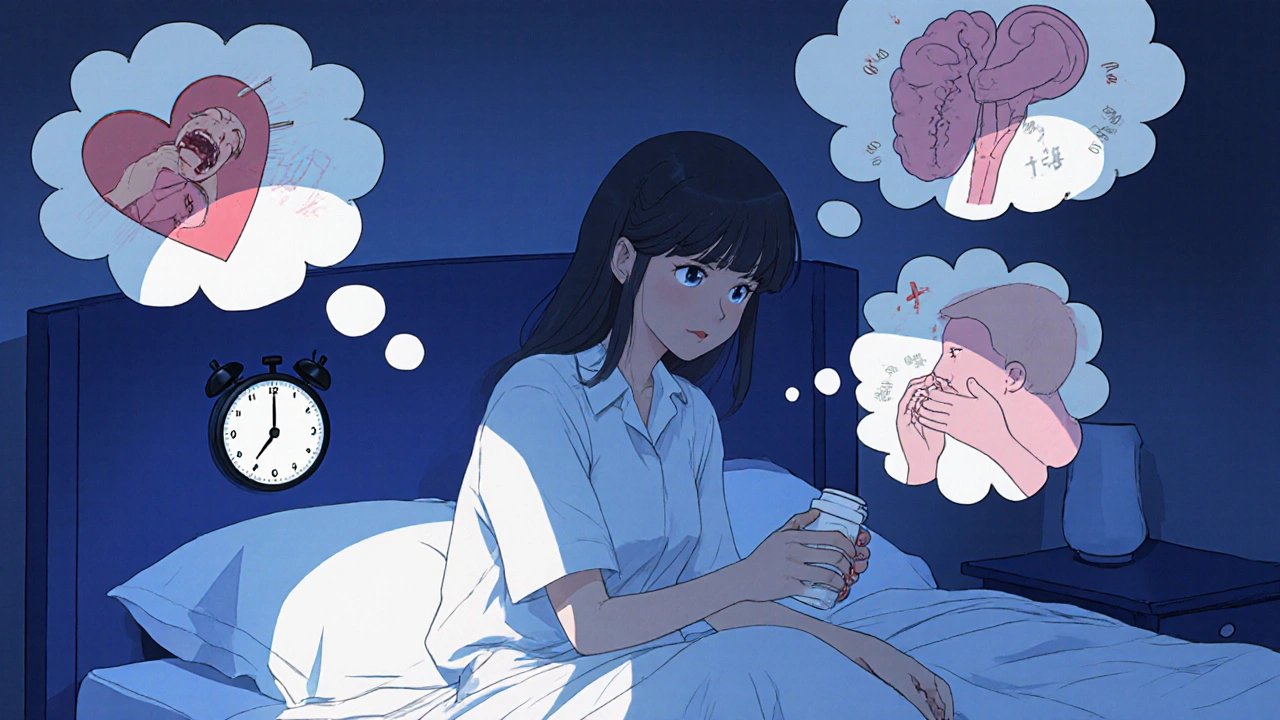Side Effect Management: How to Handle Medication Reactions Safely
When you take a medication, side effect management, the process of recognizing, reducing, and responding to unwanted reactions from drugs. Also known as adverse reaction control, it’s not about avoiding medicine—it’s about using it wisely so you get the benefits without the burden. Many people stop taking their pills because of nausea, dizziness, or fatigue, but often, those side effects can be lowered or even eliminated with simple changes. You don’t have to suffer through them. The right approach turns a frustrating experience into something manageable.
It starts with knowing what you’re dealing with. drug interactions, when one medication affects how another works in your body. Also known as medication conflicts, they can turn a mild side effect into a serious problem. For example, feverfew might increase bleeding risk if you’re on warfarin. Trazodone can make you drowsy, but pairing it with good sleep hygiene cuts that down. Finasteride might cause sexual side effects, but switching to dutasteride or trying minoxidil could help. These aren’t random guesses—they’re proven strategies covered in real cases by people who’ve been there.
And it’s not just about swapping drugs. medication side effects, the unintended physical or mental responses caused by drugs. Also known as adverse drug reactions, they vary wildly from person to person. One person’s headache is another’s non-issue. That’s why management isn’t one-size-fits-all. It’s about timing, dosage, diet, lifestyle, and knowing when to call your doctor. A scabies treatment like Elimite might itch at first, but cooling the skin helps. Motion sickness pills like Dramamine can make you sleepy, but switching to meclizine or trying ginger makes a difference. Even something as simple as taking a pill with food instead of on an empty stomach can cut stomach upset in half.
You’ll find real examples here—not theory, not fluff. People who managed trazodone’s drowsiness with sleep routines. Others who reduced finasteride’s side effects by combining it with lifestyle changes. And folks who avoided dangerous interactions between feverfew and blood thinners by tracking symptoms step by step. This isn’t about guessing. It’s about using what works, backed by experience and clear guidance.
What you’ll see below isn’t a list of drugs. It’s a collection of real strategies—how to handle side effects from antibiotics, antidepressants, chemo, ED meds, and more. Each post breaks down what went wrong, what fixed it, and how you can apply it. No jargon. No scare tactics. Just what actually helps when you’re dealing with the unwanted effects of medicine.

How to Manage Mild Side Effects Without Stopping a Medication
Learn how to manage common mild side effects like nausea, dry mouth, and fatigue without stopping your medication. Evidence-based tips from pharmacists and clinical studies help you stay on track and improve adherence.

Psychological Strategies to Manage Anxiety About Medication Side Effects
Learn proven psychological strategies to manage anxiety about medication side effects, reduce fear, and improve adherence. Discover how CBT, mindfulness, and symptom tracking can help you stick with your treatment.
